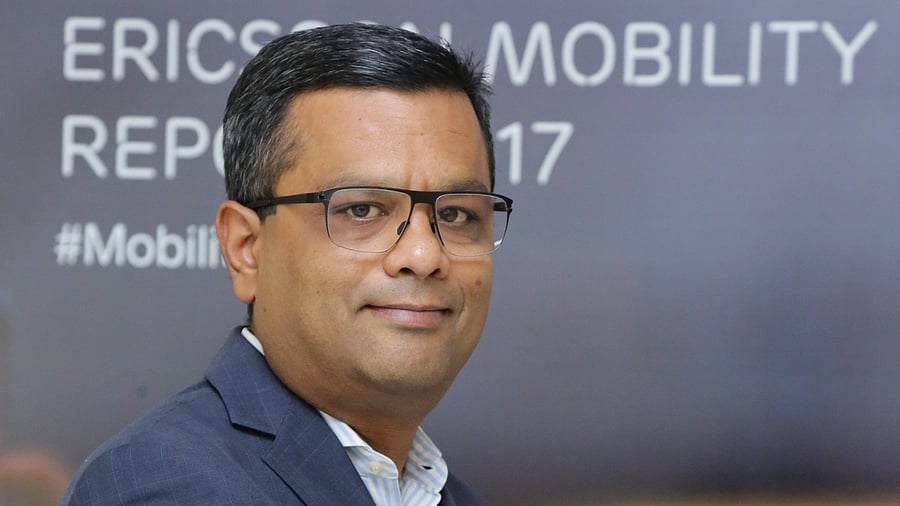
New Delhi: The deployment of 5G telecom service in India has been the fastest in the world. In just one year, around 4 lakh 5G base stations have been set up to cover 97 per cent of the cities and around 80 per cent of the country’s population. Swedish telecommunication company Ericsson has been playing a significant role in deployment of 5G infrastructure in the country. In an interview with DH’s Gyanendra Keshri, Managing Director of Ericsson India Nitin Bansal elaborated on the progress of 5G deployment and plans and challenges for 6G technology. Edited excerpts:
It’s now been over one year since the 5G technology was launched in India. How do you see the progress?
India has done a phenomenal job in 5G roll-out. This has been the fastest deployment anywhere in the world, and we also see a good uptake of usage and consumption of data. The uptake is much faster than we had predicted.
What difference does it make for the consumers?
There are two things to 5G. One, it builds additional capacity, and second, it gives a better quality of service and experience to subscribers. For example, if you are doing video streaming, if you are downloading a 4K video, 5G has enabled you to do it much faster. Then we are seeing the launch of fixed wireless access, which is in areas where you can’t get 5G, you can provide good internet connectivity to households or small and medium enterprises (MSMEs) using 5G as a backup technology. So, 5G is better quality of service, low latency, higher speeds, more energy efficient. It comes with a lot of other advantages also.
Now there is a growing buzz around 6G. How will it be different from 5G?
Every generation of telecom service, when it is launched, the research for the next generation starts. There is a cycle and the period it takes for the technology to be defined first, then standardised, then you design a product for it, then you test and then you start deploying. We are in the beginning of that cycle in 6G. India wants to play a big role in 6G and to be on the forefront. We are starting with the research, because it’s still a technology which is not standardised.
How is Ericsson preparing for the 6G?
We have set up a 6G research team in our Research & Development centre in Chennai. We have three R&D centres in India, the other two being in Bengaluru and Gurugram. Our team in Chennai has been entrusted to develop novel solutions for 6G technology. They will work in collaboration with our global research teams in Sweden and the United States.
When do you expect the testing for 6G to start?
First you do the research, you come up with specifications then you build products based on those specifications then the testing starts. We are still in the initial stage, testing will happen much later.
What kind of investments Ericsson plans to make in India for 6G research?
We don’t quantify the investments, because it’s an evolving thing. We will continue to invest depending on the needs.
How has 5G impacted Ericsson’s business in India?
In the last quarter results, India came at number two in terms of revenue for Ericsson globally. India has been among the top 5 countries in recent years. 5G has a huge positive impact on the business.